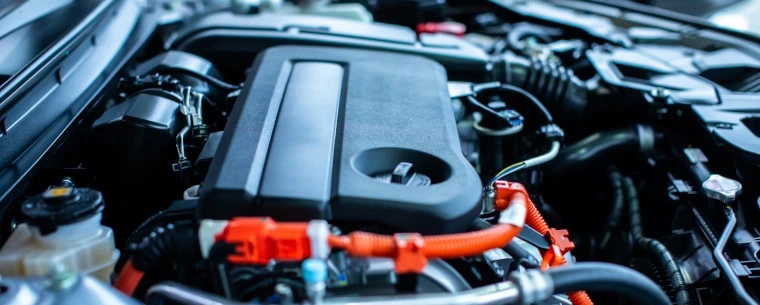What are the Benefits of Hybrid Engines & How Do They Work
Published on: Monday, 07 October 2024 | Author: Jack Dreyer
In the year to date for 2024, there were 137,838 new car registrations for hybrid vehicles, a 15.2% increase on the previous year. While consumers are still purchasing petrol cars, there is a growing demand for hybrid (and electric) vehicles across the UK and this will only continue to increase as more drivers begin to understand the benefits of owning a HEV.
If you’re keen to learn more about how hybrid engines work in comparison to traditional petrol engines, we’re here to help. Read on to find out about the benefits of hybrid engines.
What is a hybrid engine?
While a traditional engine relies solely on fuel, either petrol or diesel, for its power, hybrid engines flick between fuel and an electric motor to keep moving. The main components of a hybrid engine are the:
- Internal Combustion Engine (ICE) - the same type of engine found in a traditional, but normally smaller in size.
- Electric motor - powers the car using electricity stored in the battery.
- Battery - stores the energy generated by the electric motor and can also be recharged using regenerative braking.
The most common type of hybrid vehicle is the ‘parallel’ hybrid car. This type of hybrid is able to get its power from both the combustion engine and regenerative braking at the same time.
How do hybrid engines work?
Hybrid engines work by combining two types of power sources: an internal combustion engine and one or more electric motors powered by batteries. This allows the hybrid vehicle to switch between fuel and electric power depending on driving conditions, how fast the vehicle is travelling, and length of the journey.
For example, a vehicle driving at a slow speed may rely heavily on the power of the electric motors, however, when driving at faster speeds the combustion engine will kick in to provide more power.
Another great advantage to hybrid engines is regenerative braking. Most hybrid vehicles will have regenerative braking as an option on the gear stick, labelled ‘B’. When you press the brake pedal, any energy that is lost is captured by the electric motor and used to recharge the battery. This helps to improve fuel efficiency by reducing the amount of energy wasted from braking.
What are the benefits of hybrid engines?
From environmental impacts to energy efficiency, there are many reasons to drive a vehicle with a hybrid engine. Let’s take a look at some of the key benefits below.
Improved fuel efficiency
Because the battery in a hybrid car works hard to reduce the amount of engine idling, this helps to improve fuel efficiency. And, as mentioned above, hybrid engines tend to use electricity for short trips or low speeds so the fuel will generally last longer than traditional vehicles. Although traditionally considered more suitable for shorter journeys, the growth in EV charging points has now made driving longer distances in hybrid vehicles a more practical option too.
Eco-friendly
If you’re looking to reduce your environmental impact and carbon footprint, a hybrid engine is a positive first step towards this and a much more affordable option to EVs. Hybrid engines are also a great way to dip your toe into driving eco-friendly vehicles without committing to full electrical charging.
Regenerative braking
Regenerative braking is great for recharging your battery and making your vehicle more energy efficient. You can also use regenerative braking to gradually slow down your car while driving on hilly or steep roads.
Financial incentives
For one, you may find your road tax is slightly cheaper in comparison to petrol vehicles because of the low CO2 emissions that hybrid cars emit.
In addition to this, if you travel in or around London often, you’ll be pleased to know if you drive a vehicle emitting 75g CO2/km or less you won’t need to pay the London Congestion Charge, although you will need to pay a £10 annual registration fee.
You also won’t need to pay the Ultra Low Emission Zone (ULEZ) charge as most hybrid cars meet the minimum emissions standards. You can check your vehicle online if you need to pay.
Quieter running noise
Finally, hybrid engines are much quieter than their non-hybrid counterparts. While this might bring some peace and quiet to the driver, it can be a safety concern for pedestrians who may not hear a hybrid vehicle coming. However, since July 2019, manufacturers have been installing acoustic sound systems in new types of hybrid vehicles to improve road safety for all road users.
Need help with your hybrid engine?
Overall, hybrid engines are a great alternative to traditional engines if you’re looking for a more environmentally friendly and fuel efficient vehicle. And, if you’re not ready to commit to electric charging, hybrid engines will help you transition to that next step if you wish to own an electric vehicle in the future.
If you own a hybrid vehicle and have any concerns about the engine, get in touch with our friendly team or visit your local Tyre Pros centre. And, in the meantime, keep up-to-date with the latest motoring news and advice on our blog.




